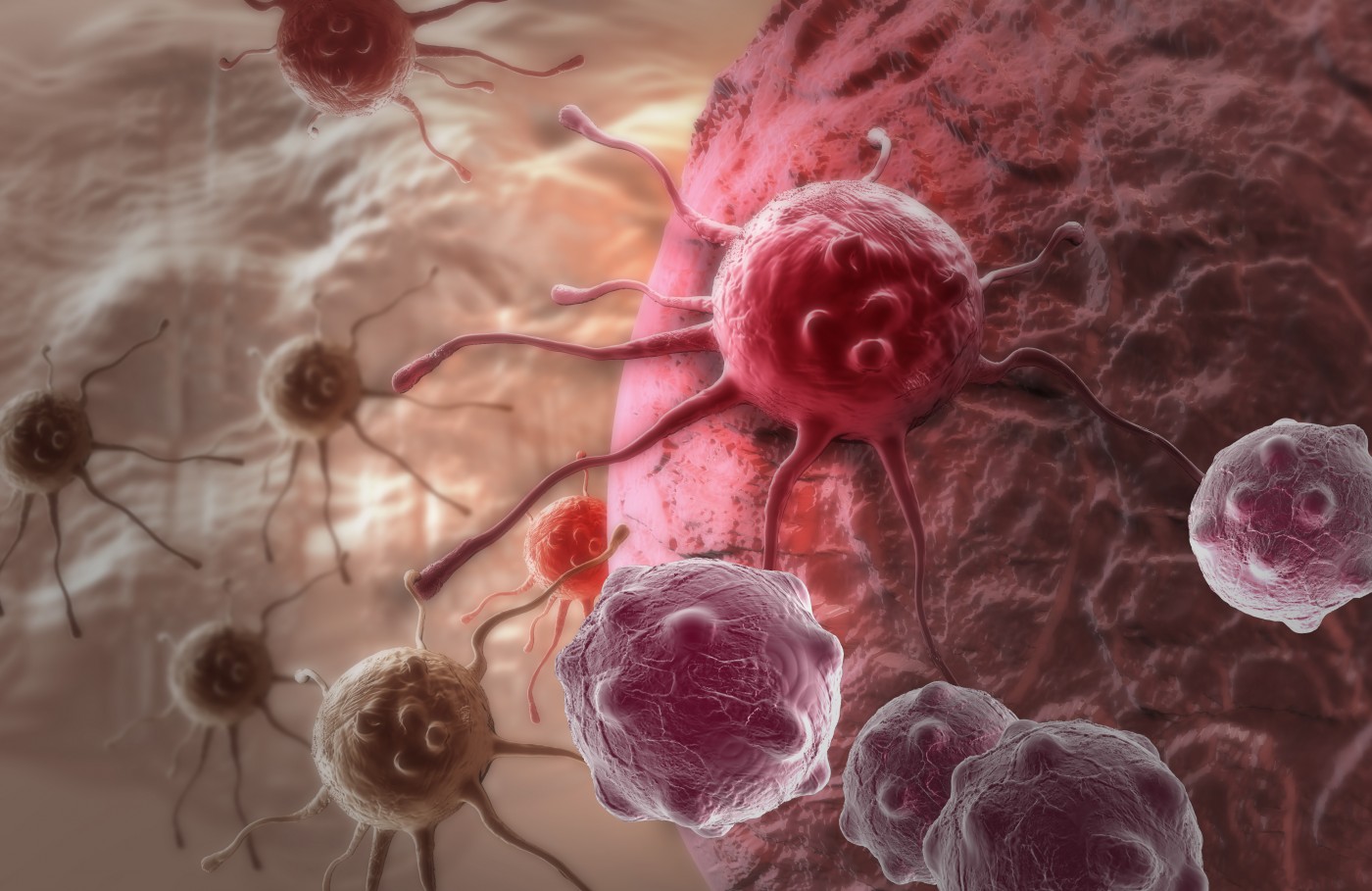Case Western University researchers found that a single dose of the anticancer drug trastuzumab induced a strong immune response in HER2-positive breast cancer tumors. Such results confirm previous research suggesting that intrinsic cancer subtype and immune cell infiltration predict response to trastuzumab-based therapy, and add to knowledge of antitumor immunity and patient response to treatment, as well as indicating potentially useful clinical HER2+ breast cancer biomarkers.
The research paper, “Immune Signatures Following Single Dose Trastuzumab Predict Pathologic Response to Preoperative Trastuzumab and Chemotherapy in HER2-Positive Early Breast Cancer,” was published in Clinical Cancer Research.
Trastuzumab (commercial name, Herceptin) is approved for use as a single or conjugation therapy for the treatment of HER2-positive adenocarcinoma of the stomach and gastroesophageal junction, and HER2-positive breast cancer. HER-2 (human epidermal growth factor receptor 2) is a cell-surface protein involved in the control of cell growth. HER2-positive is a term used to describe cancer cells that express high levels of this protein, leading to abnormal tumor growth and increased metastatic potential. Checking if a cancer is HER-2 positive can lead to a better planning of therapeutic strategies, including the administration of drugs that specifically kill HER-2 positive tumor cells. Previous research has suggested that the specific subtype of cancer and immune cell infiltration may help predict patients’ response to trastuzumab treatment.
Researchers studied the interaction between cancer subtype and immune cell infiltration and how that affected changes in tumor behavior after a single exposure to trastuzumab. Patient biopsies and gene expression profiles were obtained at baseline and after exposure to trastuzumab. Results showed that pathologic complete response (pCR) rate was significantly higher in HER2-enriched tumors, a subtype of HER2-positive cancer, as compared to other subtypes. About 50 percent of women with HER2-positive cancer achieved complete tumor responses with trastuzumab before surgery, and 60 percent achieved a complete response when trastuzumab was combined with other treatments. Moreover, researchers also found signature behaviors of T-cells that could be used to predict the immune system’s response, especially the increased expression of the T-cell immune checkpoint PD-1.
Dr. Vinny Varadan, the study’s first author, said in a press release, “Our study showed, for the first time, that the immune-cell–activating properties of trastuzumab are likely related to the subtypes of breast cancer. Knowing this can inform future trials studying the usefulness of adding immunotherapy drugs to trastuzumab.”

